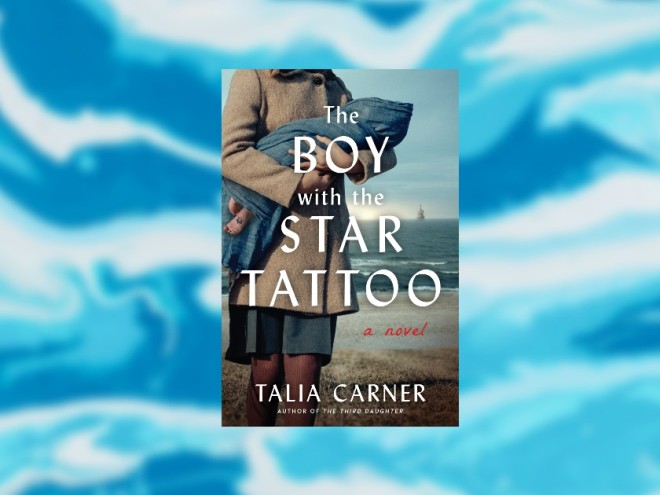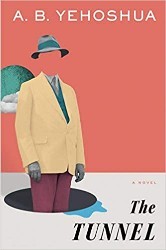In the prologue of this work of historical fiction, a young Jewish woman leads a group of children on a small boat. It is 1946, and they are headed to Eretz Israel, where they’ll wait for Haganah members to discreetly take them to freedom — without being detected by the British, who control Palestine. This moment sets up a series of tense, secretive plots that unravel throughout the book.
During the Holocaust, many Jewish children were hidden with Christian foster families in France, and the Youth Aliyah movement aimed to find and save these Jewish orphans and bring them to Israel. The Boy with the Star Tattoo explores these events and their ramifications over almost three decades. The novel is told from the points of view of three characters: Uzi Yarden, Sharon Bloomenthal, and Claudette Pelletier.
Uzi is an Israeli committed to the Youth Aliyah movement. Sharon Bloomenthal is a twenty-year-old recruit for an enigmatic Israeli naval operation in Cherbourg in 1968. She’s in a state of depression and loneliness as she waits for news about the fate of her fiancé, who was on a submarine that recently disappeared. While in France, Sharon’s job is to meet naval recruits at various airports and train stations throughout Europe — to avoid detection of their operation — and then escort or direct them to Cherbourg. The busy, exhilarating schedule in which Sharon is caught up causes her to wonder anew about her deceased mother’s escape from France with Youth Aliyah after World War II. With any leisure time she manages to find, she interviews clergy, Nazi collaborators, and Christian townspeople to try to piece together who her mother was and how she arrived in Israel. Meanwhile, Sharon finds out that Danny, an Israeli naval officer in Cherbourg, was also rescued through Youth Aliyah. She conducts some secret investigations into his past in order to learn more about her own family.
Then there’s Claudette Pelletier, a young French Christian woman living in the Chateau de Valencay in 1942. A seamstress for the duchess, she finds herself in the midst of a refugee crisis, extreme food shortage, and a fear that, as a disabled person, she might be targeted by the Nazis as well. She falls in love with a Jewish man who is also an “invalid,” and their story becomes intertwined with the Youth Aliyah movement. Carner balances the danger and despair Jews felt during a period of increased deportations and arrests with the heroism and perseverance they exhibited in postwar France.
Carner includes a number of historical figures, including Felix Amiot and Mokka Limon, as well as many well-researched details about the disappearance of the Dakar submarine. She also covers the Cherbourg Project, which released a dozen Israeli ships in France during an arms embargo, and the work of the Youth Aliyah movement between World War II and the creation of the State of Israel.
The Boy with the Star Tattoo is a worthwhile read. It simultaneously depicts little-known historical moments in France and the humanity and resilience of Carner’s characters.
Jamie Wendt is the author of the poetry collection Fruit of the Earth (Main Street Rag, 2018), which won the 2019 National Federation of Press Women Book Award in Poetry. Her manuscript, Laughing in Yiddish, is forthcoming in the early Spring of 2025 by Broadstone Books and was a finalist for the 2022 Philip Levine Prize in Poetry. Her poems and essays have been published in various literary journals and anthologies, including Feminine Rising, Green Mountains Review, Lilith, Jet Fuel Review, the Forward, Poetica Magazine, Catamaran, and others. She contributes book reviews to the Jewish Book Council. She received a Pushcart Prize Honorable Mention and was nominated for Best Spiritual Literature. She was selected as an International Merit Award winner in the Atlanta Review 2022 International Poetry Competition. She holds an MFA in Creative Writing from the University of Nebraska Omaha. She is a middle school Humanities teacher and lives in Chicago with her husband and two kids.





